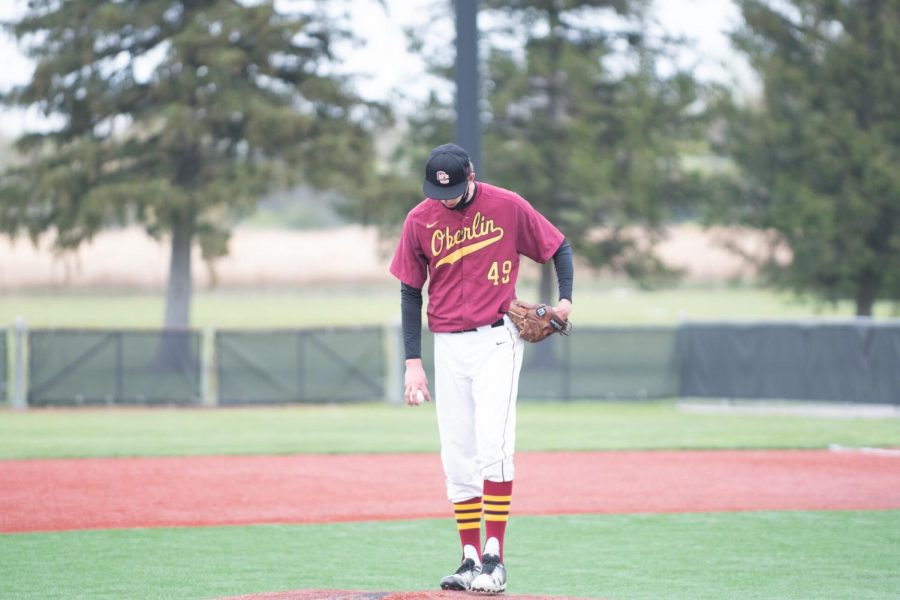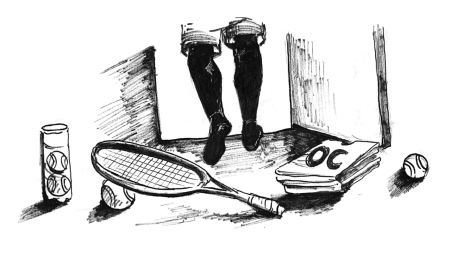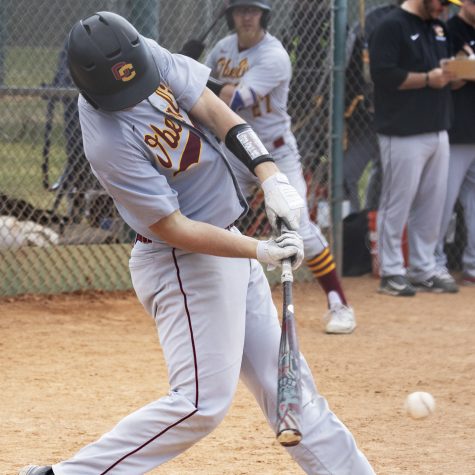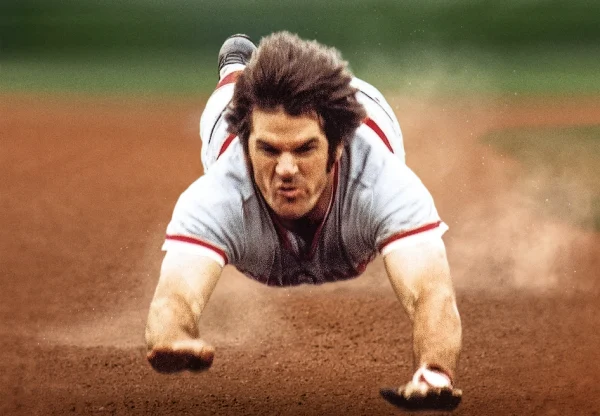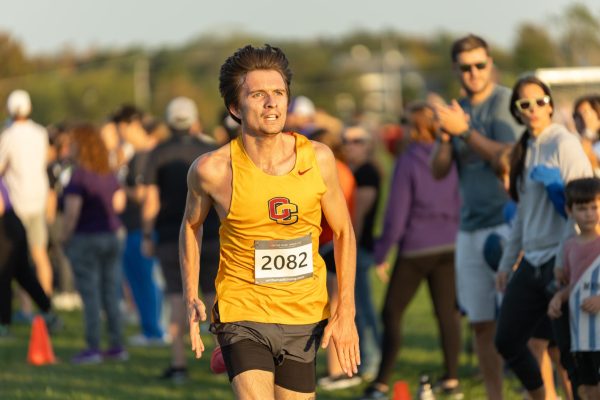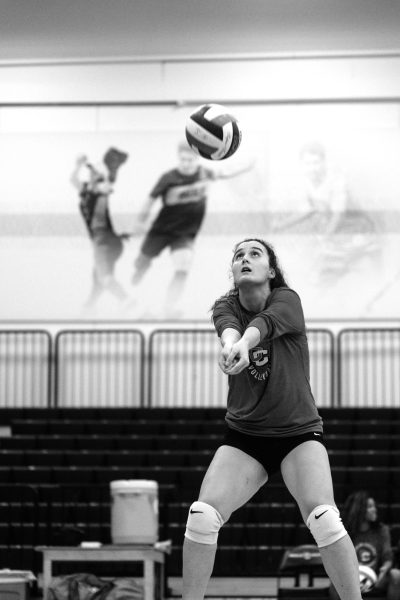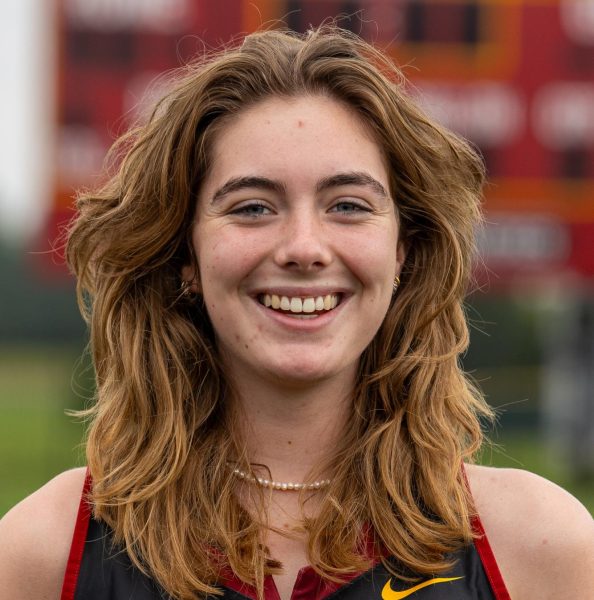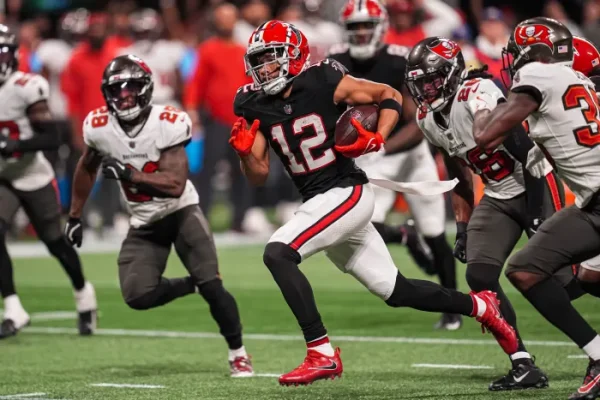Oberlin Baseball Reflects on Negative Reputation
Fourth-year pitcher Zander Norris takes the mound during the 2021 season.
Editor’s note: This article mentions sexual assault and rape culture.
On campus, the reputations of Oberlin men’s sports teams vary greatly. Recently, the baseball team has come under the spotlight for their team culture after Yik Yak posts directly named and accused specific individuals on the team of sexual assault.
Fourth-year baseball player Zander Norris says that he knows his team has developed a negative reputation at Oberlin.
“We are reviled for being an unpassionate group of frat-like individuals with no regard for the rest of the student body and are only really here to play baseball and have a good time at other people’s expense,” he said. “I would vehemently disagree with that thought.”
Norris acknowledges that it’s true that there have been people on his team who have been more representative of a “frat boy” lifestyle, but he believes that they are a small minority of the 57-person team. He speaks highly of most of his team and says his current teammates are some of the best people he’s had the privilege of meeting, and most reflect the ideals voiced by the College and the larger student body.
Third-year on the baseball team Max Anastasio says that baseball is notorious for being a sport with a lot of toxic masculinity and “locker room talk.”
“We’ve been taught that that kind of behavior and that kind of way to talk about people is not appropriate or acceptable,” he said. “We should be above that, and it definitely contributes to rape culture. And although my team isn’t ‘as bad or toxic as some other schools,’ we are nowhere near the standard that we should be.”
Third-year on the baseball team Yianni Gardner is the Title IX compliance trainer for the team along with Norris and believes that the team’s negative reputation is definitely warranted.
“There have been situations in the past, both while I’ve been a student and before my time here at Oberlin, where harm has been caused by players on this team,” said Gardner. “This being said, we are taking all steps that the Title IX office has told us to follow, and we are doing our best to act within our boundaries.”
Gardner feels the players on his team are taking this topic very seriously and are focused on taking the necessary steps to change the team’s reputation on campus and ensure no future harm is caused by players.
Norris points out that his teammates are certainly aware that harm has been perpetuated within their community in the past and that it continues to be an issue today. He notes that harm does not arise out of nowhere; rather, it arises from a lack of accountability on a daily basis.
“It was in the everyday interactions we had with each other and the interactions we had with the larger student body,” he said. “I think that was most explicitly expressed through the numerous problems arising from Saturday nights of drunken stupor, but the grounds were laid through a general disregard for how we acted in the public sphere.”
Norris says that there was an ignorance toward the feelings of those the team interacted with, which inevitably ended in harm to others. He believes it came about through not holding one another accountable. He says those problems are by no means a thing of the past, but it’s been their goal this semester to buckle down on behavior and snuff out dangerous and harmful habits.
Second-year baseball player Jay Aghanya describes the steps his team is taking to prevent any further harm to others. He highlights that the team has been working with the College’s resources and that before the fall semester started, they had a couple of meetings with the Office of Equity, Diversity, and Inclusion to talk about what the team can do to stop perpetuating harm.
“Our first action was to keep each other in check: in public, in our day-to-day lives, and especially during the weekends,” he said. “If we keep doing that as a team, I think this would take us in the right direction while cases are dealt with legally and confidentially.”
Aghanya mentions that the older members on his team have been dealing with issues about their reputation and have had to deal with problematic players on the team in the past, so he looks to them for some guidance.
“The upperclassmen have been constantly keeping the underclassmen in check so that these issues don’t start back up in the future,” Aghanya said. “The most important thing that we can all do now is ensure we’re doing our very best to prevent future harm.”
Norris says that he’s aware his team has had a poor reputation on Oberlin’s campus for years, and the interactions the team has had with the larger community has done nothing to detract from that.
“I like to encourage people to think of individual baseball players they know personally and how they think of them,” he said. “A lot of the time, it is in a favorable light. We as a group have no room to ask for favor, but the individuals that have personal relationships with baseball players I think directly contrasts that thought.”
Gardner says that the team is trying to repair its reputation and strive to make the atmosphere surrounding it a more positive and inclusive one, even though this may not be the perception of other students on campus. He says taking accountability is key in this process.
“Accountability allows individuals to learn from their actions and grow as a result,” he said. “This involves having the individuals understand the consequences of their actions and working to ensure there are no repeats, as well as making space for those who have been harmed by players on this team. It’s important we acknowledge the survivors and understand their emotions.”
Anastasio says that as the team moves forward in trying to repair its reputation on campus, it’s important to note that the team has been having this conversation since he got to Oberlin in 2018.
“We’ve known our reputation has been a problem for years now,” he said. “We’ve always addressed it; even three years ago when I was a first-year, this was something we talked about actively and often. That being said, it shouldn’t take getting blasted on social media for us to want to make a change and hold each other accountable.”
Norris says that in an unofficial capacity, the team is working on building trust in the community each day and interacting with those outside of the athletic sphere.
“The actions of the few cannot outweigh the many, and it is our goal to repair and build on relationships with the student body at large,” he said. “This year Yianni and I were Title IX ambassadors for our team, and as a group they showed great engagement and willingness to learn about how to reduce harm in this community. I was very encouraged by their responses.”
Gardner points out, however, that due to the Title IX process and constraints, the team is not allowed to take any action against individuals who have perpetuated harm unless a formal process ends in the office stating an individual deserves consequences.
Gardner promises the team is working hard and diligently to make sure violence is not tolerated or perpetuated within the baseball team.
“The Title IX office definitely limits what we can do as players, which is frustrating because we want to do everything we can to resolve situations and hold people accountable,” he said.
When a report is filed against a player, the team is not made aware of the allegations as per Title IX regulations and the federal Family Educational Rights and Privacy Act.
According to the Office of Equity, Diversity, and Inclusion website, “The Title IX team handles all matters professionally and discreetly by sharing information only with those who need to know and by informing participants of those disclosures. The Title IX team maintains the privacy of student records in compliance with the federal Family Educational Rights and Privacy Act.”
College third-year Emma Hart, one of the leaders of Survivors of Sexual Harm & Allies, believes that the most important thing for players to do is to support survivors.
“We need to believe survivors, and the default should be to believe survivors,” she said. “It should not be to make excuses or question a survivor’s story. The focus should be to believe and reflect on what the survivor needs.”
While Hart is encouraged by the recent dialogue by the baseball team, she asserts that accountability should always be about the survivor and not the team image.
“I’m glad that [the baseball] team is talking about it, but it’s less so about the team’s image and more so that [the players] should be asking themselves the question, ‘How have we enabled harm?’”
Norris shares similar sentiments with Gardner and says due to the fact that the team has been given minimal power to enact consequences, it is doing its very best to ensure that anyone on the team who perpetuates harm goes through a process in which they will grow and acknowledge their actions.
“From that process, we hope to ensure that no further harm is caused here at Oberlin or in the world beyond,” he said.


